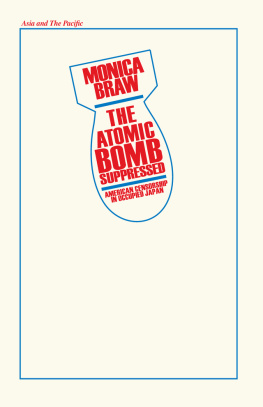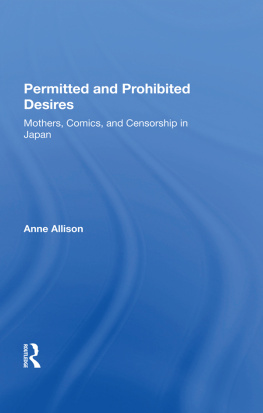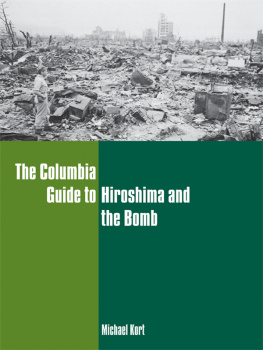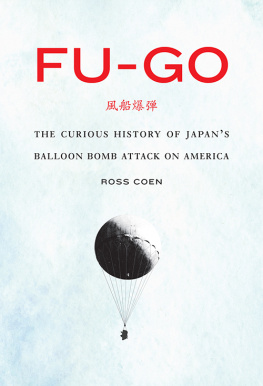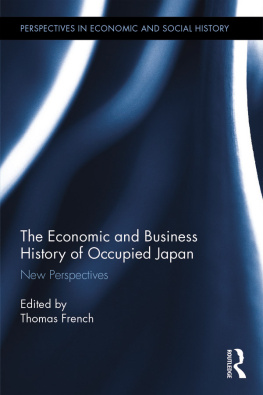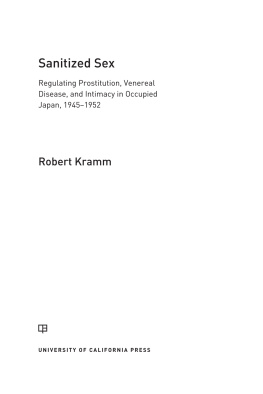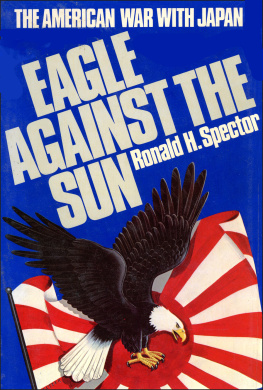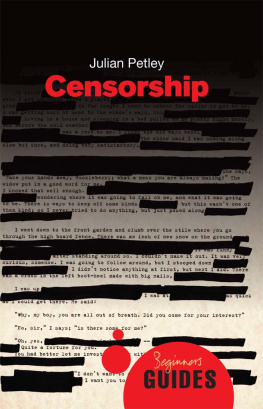THE ATOMIC BOMB SUPPRESSED
AMERICAN CENSORSHIP IN OCCUPIED JAPAN
THE ATOMIC BOMB
VOICES FROM HIROSHIMA AND NAGASAKI
Edited and translated by Kyoko and Mark Selden
JAPAN'S NEW IMPERIALISM
Rob Steven
THE ATOMIC BOMB SUPPRESSED
AMERICAN CENSORSHIP IN OCCUPIED JAPAN
Monica Braw
JAPANESE WOMEN WRITERS
TWENTIETH CENTURY SHORT FICTION
Edited and translated by Noriko Mizuta Lippit and Kyoko Iriye Selden
Monica Braw
The Atomic Bomb Suppressed
American Censorship in Occupied Japan
An East Gate Book
First published 1991 by M.E. Sharpe
Published 2015 by Routledge
2 Park Square, Milton Park, Abingdon, Oxon OX14 4RN
711 Third Avenue, New York, NY 10017, USA
Routledge is an imprint of the Taylor & Francis Group, an informa business
Copyright 1991 Taylor & Francis. All rights reserved.
No part of this book may be reprinted or reproduced or utilised in any form or by any electronic, mechanical, or other means, now known or hereafter invented, including photocopying and recording, or in any information storage or retrieval system, without permission in writing from the publishers.
Notices
No responsibility is assumed by the publisher for any injury and/or damage to persons or property as a matter of products liability, negligence or otherwise, or from any use of operation of any methods, products, instructions or ideas contained in the material herein.
Practitioners and researchers must always rely on their own experience and knowledge in evaluating and using any information, methods, compounds, or experiments described herein. In using such information or methods they should be mindful of their own safety and the safety of others, including parties for whom they have a professional responsibility.
Product or corporate names may be trademarks or registered trademarks, and are used only for identification and explanation without intent to infringe.
Library of Congress Cataloging-in-Publication Data
Braw, Monica.
The atomic bomb suppressed: American censorship in occupied Japan
/by Monica Braw.
p. cm.(Asia and the Pacific)
Includes bibliographical references and index.
ISBN 0-87332-628-8
1. PressJapan. 2. Freedom of the pressJapan. 3. Atomic bombJapan.
4. JapanHistoryAllied occupation, 19451952. I. Title. II. Series: Asia and the
Pacific (Armonk, N.Y.)
PN5404.B7 1991
303.3'76dc20
90-26811
CIP
ISBN 13: 9780873326285 (hbk)
Mark Selden
IN THE SUMMER of 1945, its World War II triumph capped by the atomic bombing of Hiroshima and Nagasaki, the United States set out to remake a defeated Japan in its own self-image as a free, democratic, and capitalist society. The occupation has been widely regarded as a rare success in the annals of war and peaceful transition: in just six years, the United States planted the seeds of a lasting democratic polity, assisted a ravaged economy to rapid recovery, paving the way for its subsequent emergence as an economic superpower, and restored Japanese sovereignty.
In this carefully researched and nuanced work, Monica Braw draws on declassified U.S. archives and on interviews with atomic victims and Japanese authorities to raise troubling questions about censorship and free speech, about atomic diplomacy, and about U.S. occupation policy, questions that prompt us to rethink central presuppositions of the postwar global order.
At the very moment that the United States was destroying the apparatus of censorship and repression of the Japanese imperial state, dismantling the giant zaibatsu firms that it pinpointed as the economic roots of fascism, and proclaiming its commitment to democratic and constitutional rule, the occupation authorities, under the direction of General Douglas MacArthur, implemented secret mechanisms of censorship. U.S. censors set out to mold Japanese public opinion, to shield the United States from public criticism, and to preserve a U.S. monopoly on information pertaining to the effects of the atomic bomb on its victims.
This study details the inner workings of the U.S. censorship apparatus as it pertained to the atomic bombing of Japan and assesses the manifold consequences for Japanese democracy, for the United States as a global power, for world peace, and for the victims of the bomb. It shows how U.S. censors implemented comprehensive censorship and postcensorship controls on the Japanese press and banned literary works, including novels, poetry, and children's stories, as well as films that explored the troubling issues of atomic destruction. In one extraordinary case that reached the highest echelons of occupation censorship, General Charles Willoughby first denied and later permitted publication of the personal account of the Catholic Doctor Nagai Takasi, but only on condition that The Bells Toll for Nagasaki be published together with an account of Japanese atrocities in the Philippines. The result was the unwitting tacit admission that the dropping of the atomic bombs on Japanese civilians was the moral equivalent of Japanese wartime atrocities. Even as their own censorship mechanisms were being set in place, the U.S. authorities wrote into Japan's new constitution (Article 21) that "No censorship shall be maintained ..."
Braw's evenhanded treatment of censorship issues reveals deep and persistent divisions within the occupation over issues of censorship in general and atomic censorship in particular. If the system was far from monolithic, this study nevertheless shows that censorship:
distorted the postwar global nuclear debate by stilling the voices of atomic victims and by concealing basic information on the consequences of atomic warfare in general and radiation in particular;
impeded the treatment of atomic vicims by emphasizing secrecy and barring dissemination of medical research results, approaches geared to preserving U.S. nuclear supremacy rather than to aiding victims;
shaped the course of postwar Japanese politics and consciousness by denying victims and critics of the bomb an arena to air their grievances, and by establishing a duplicitous standard for a democratic polity.
Monica Braw, historian, investigative journalist, and novelist, brings to this study insights that contribute to the continuing global debate over nuclear war, the global role of the United States, and the nature of democratic transitions.
- ABCC Atomic Bomb Casualty Commission
- AEC Atomic Energy Commission
- AFPAC Armed Forces Pacific
- AFSWP Armed Forces Southwest Pacific
- ASF Armed Service Forces
- CCD Civil Censorship Detachment (SCAP)
- CCS Combined Chiefs of Staff
- CIC Counter-Intelligence Corps Detachment (SCAP)
- CIE Civil Information and Education Section (SCAP)
- CIS Civil Intelligence Section (SCAP)
- ESS Economic and Scientific Section (SCAP)
- FEC Far Eastern Commission
- G-2 Intelligence Section; Head of Intelligence Section (GHQ)
- GHQ General Headquarters (SCAP); especially in Japanese used synonymously with SCAP
- JCAC Joint (Army and Navy) Civil Affairs Committee
- JCS Joint Chiefs of Staff

